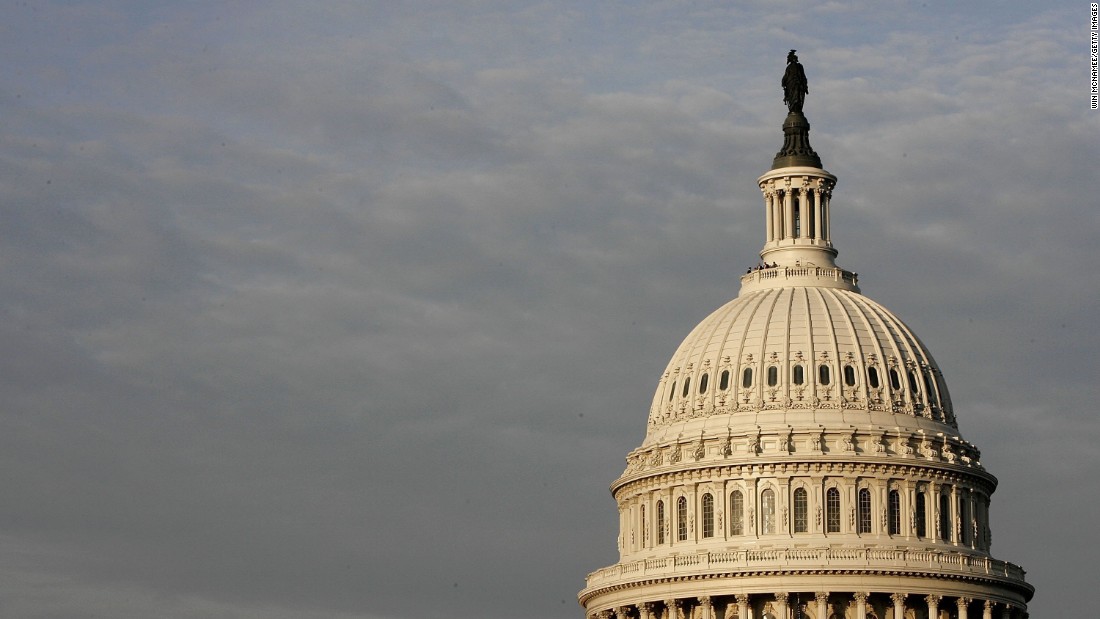
When Vice President Mike Pence cast his tie-breaking ‘yes’ vote, there was no spontaneous applause or cheers from Republicans on the Senate floor. In fact, after members started to trickle out of the chamber after voting to begin the debate on an Obamacare repeal bill, the only noise loud enough to break through came from a few straggler protesters seated upstairs in the gallery, who yelled out, “kill the bill.”
Six months after President Donald Trump’s inauguration, Senate Republicans were finally successful Tuesday afternoon in kicking off consideration of a House-approved bill to overhaul the Affordable Care Act. But the tension that permeated before and after the nail-biter vote was a far cry from the almost joyful manner in which Republicans have campaigned on their promise to gut Obamacare for years. Some telegraphed what Republican senators have known all along: This painful process is far from over.
“I don’t know. Y’all were watching. It was fine,” Senator Bob Corker, R-Tennessee, told CNN. When it was pointed out that there was hardly a sense of celebration among his colleagues, the senator responded: “Well, I think everybody understands this is just a first step.”
The mood appeared to be a mix of unease and exasperation following the political infighting and secretive negotiations of the past few months — mixed with anxiety about the tumultuous and unpredictable few days that now lie ahead.
Arizona Senator John McCain, who made a dramatic return to Washington on Tuesday just days after surgery to remove a brain tumor, delivered an impassioned speech scolding colleagues in both parties for refusing to reach across the aisle on most issues.
“We’re getting nothing done, my friends. We’re getting nothing done,” McCain said. “I don’t think any of us feels very proud of our incapacity. Merely preventing your political opponents from doing what they want isn’t the most inspiring work.”
Senators will be asked to endure hours of debate and vote on what could easily be dozens of amendments. Ultimately, they will be tested on whether the GOP can reach a consensus on health care reform — a goal that has eluded senators so far.
On Tuesday night, senators cast their second vote of the day on a previous Senate proposal known as the Better Care Reconciliation Act, with an additional $100 billion for people on Medicaid that moderate Republicans pushed for, as well as a proposal from conservative Senator Ted Cruz to allow for bare-bones health insurance plans.
It’s the version of a bill Senate Republicans already had rebelled against earlier this month, and because the amendment required 60 votes for passage, it failed easily, with only 43 GOP senators backing it.
Further complicating the process is the fact that a handful of senators have already publicly come out against some of the proposals on the table, including the 2015 repeal-only bill and an earlier version of the repeal and replace legislation.
And that is only the tip of the iceberg; after what can be 20 hours of debate, senators will then enter “vote-a-rama,” which allows any senator to introduce any amendment they want. That process can go on for as long as members can stand it.
A senior Democratic aide told CNN that Democrats are prepared to be “extremely aggressive” in showering the Senate floor with health care amendments throughout that process. It will be a “full on” and “no holds barred” blitz with dozens if not hundreds of amendments potentially being offered, the aide said. Democrats will want to inflict as much pain as possible on Republicans, and force them to take as many damaging political votes as they can.
The vote-a-rama will be especially trying for senators who face competitive re-elections in 2018. Senators Jeff Flake of Arizona and Dean Heller of Nevada both voted to advance the health care bill Tuesday, and the next few days could give their opponents endless fodder for attack ads against them.
In a statement announcing his decision to vote ‘yes’ on the motion to proceed on Tuesday, Heller said his final decision would be simple: “If the final product isn’t improved for the state of Nevada, then I will not vote for it; if it is improved, I will support it.”




